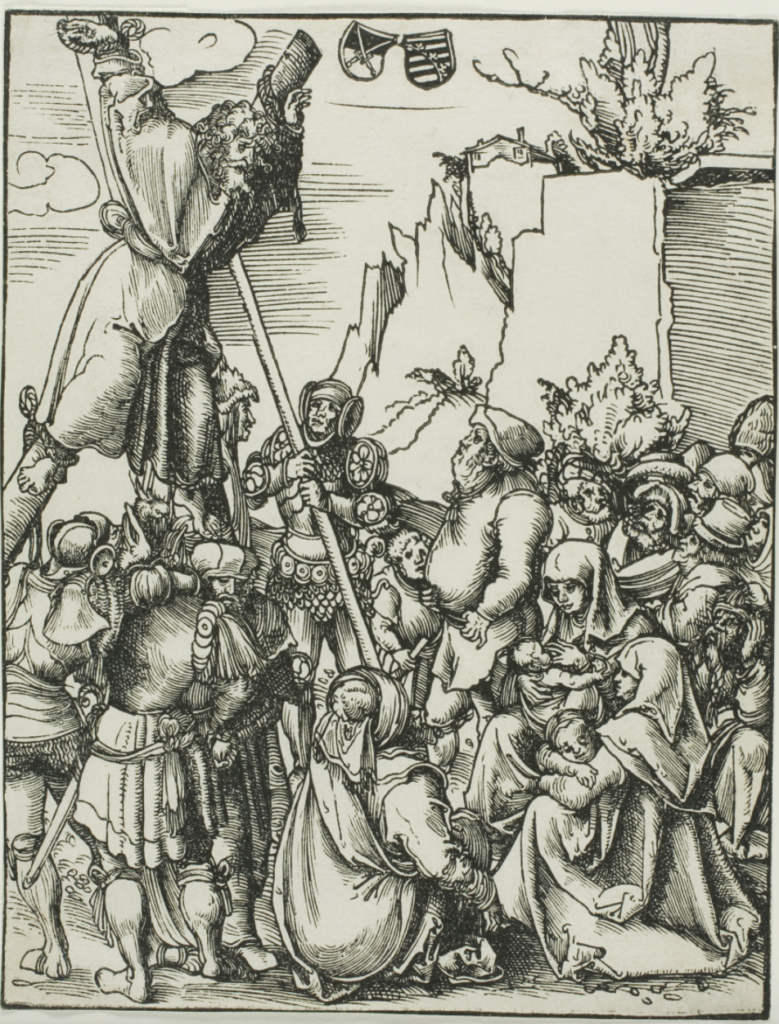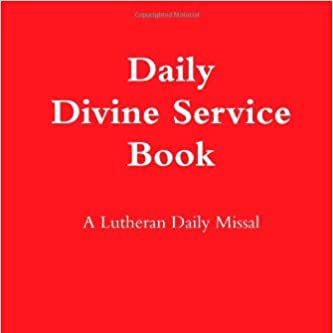
St. Andrew, apostle and martyr, was the first of Jesus’ twelve disciples. We read in John’s Gospel that Andrew was a follower of John the Baptist, the great forerunner who pointed crowds of people—including the one-time fisherman, Andrew—to the Christ. As soon as John told him about Jesus, Andrew went and told his brother Simon Peter about this Messiah, and so these two men were made fishers of men (Jn 1:40).
After Jesus called the twelve disciples, he instructed them in the way that they were to teach, heal, and raise the dead. In Matthew 10, Jesus instructed them that the disciples would not be above their teacher, and indeed Andrew’s faithful preaching and teaching set him apart from the world just as his Lord’s teaching had done.
Andrew appears by name a couple of other places in the New Testament: in the Gospel of John he announces the presence of the boy who offers the fish and loaves at the feeding of the 5,000. Andrew was also in the company of disciples who ask Jesus about the signs of the end of the age. The last we hear of Andrew in the Scriptures is at the appointing of Matthias to replace Judas, where he and the other ten apostles were present.
Like many of the other disciples, we learn much more about him from extra-biblical sources, where Andrew is said to have gone on to preach in Palestine, Scythia, Epirus, and Thrace. The account of his death comes from a later source that some would call unreliable but that is nevertheless popular and widely accepted today. Sometime between AD 60 and 70, Andrew traveled to Patras, Greece, where the proconsul wanted to have him crucified for proclaiming Christ. However, Andrew requested that he not be crucified in the same manner as his Lord because he was not worthy of that honor. Instead, they fixed him to an X-shaped cross. But even crucifixion would not hold back Andrew’s zeal for the Gospel, and he is said to have preached from the cross for two days until he again saw his Savior face to face.
In this account we see how Andrew ran his race remembering his Lord’s words in Matthew 10: “And you will be hated by all for my name’s sake. But the one who endures to the end will be saved.”
A Brief History
St. Andrew’s body was first laid in the Church of the Apostles in Constantinople, but his remains were later moved to Fife, Scotland, where the Cathedral of St. Andrew still stands and where all of Scotland holds him as its patron saint. Consequently, the Scottish flag features the “saltire cross,” which reflects the X-shaped cross of St. Andrew’s martyrdom, and November 30th, the day of his martyrdom, has long been celebrated as the national holiday of Scotland. People celebrate by dancing, feasting, and story-telling. A common dish for this day would be a traditional Scottish food such as Scottish pies, fish and chips, or shortbread, to name a few!
Moreover, St. Andrew’s Day is an important day in the liturgical year, and not only because he was an apostle and martyr. His day is the traditional marker for the first day of Advent, which is also the first day of the new liturgical year. Thus, the new year falls on the Sunday closest to November 30th. This year, in 2021, Advent begins on November 28th.

Collect
Almighty God, by whose grace Thine Apostle Saint Andrew obeyed the call of Thy Son Jesus Christ: grant unto us also grace to follow Him in heart and life; through the same, Jesus Christ, Thy Son, our Lord, who liveth and reigneth with Thee and the Holy Ghost: ever one God, world without end. Amen
Lessons
Epistle
Gospel
Resources
Issues, Etc. interview with the Rev. Will Weedon on St. Andrew
Propers found in Daily Divine Service Book: A Lutheran Daily Missal, edited by the Rev. Heath Curtis
References:
1. Weedon, William. Celebrating the Saints. Concordia Publishing House. 2016.
2. Pfatteicher, Philip H. Festivals and Commemorations. Augsburg Publishing House. 1980.
Images:
1. Saint Andrew, from The Martyrdom of the Apostles, Lucas Cranach the Elder, Germany, 1512.
2. The Martyrdom of St Andrew, Bartolome Esteban Murillo, 1675-82.




[…] we touched on in our St. Andrew post, this apostle preached to the Scythians and other peoples. The Scythians later migrated from their […]